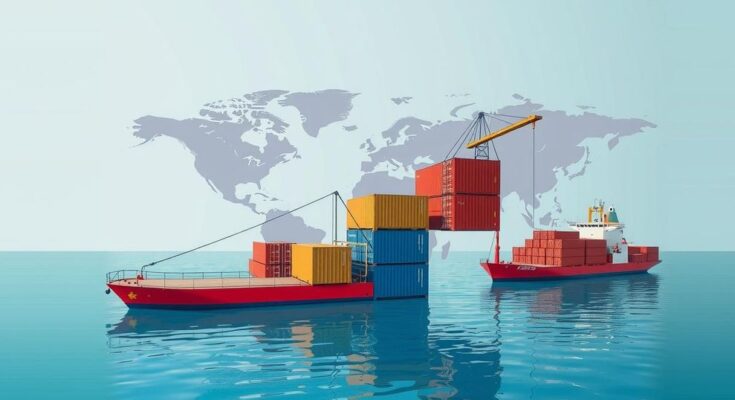The Canada-Ecuador trade agreement, finalized recently, is criticized for prioritizing mining interests over democracy and brings minimal economic benefits. Key provisions allow foreign investors to bypass local courts through investor-state dispute settlement, which contradicts Ecuador’s constitutional barriers. Despite citizen opposition, mining interests drive this agreement, raising ethical concerns regarding Canadian corporate practices and international trade policies.
Canada’s recent trade agreement with Ecuador, finalized amidst ongoing concerns regarding trade policies, may seem beneficial but lacks significant economic impact. The expected GDP addition of $80 million is negligible compared to Canada’s larger trade dynamics. Instead, the agreement seems primarily designed to safeguard mining interests against local opposition, raising issues of democracy akin to the economic pressures exerted by the Trump administration.
One concerning feature of the deal is its provision for foreign investors to pursue international arbitration against both Canada and Ecuador, despite Ecuador’s constitutional ban on such measures. This clause was championed by the mining sector and opposed by human rights advocates during public discussions in 2023. This investor-state dispute settlement (ISDS) mechanism allows foreign entities to challenge government regulatory actions that impede their operations, often at the expense of local health and environmental protections.
Ecuador previously took measures to eliminate ISDS, particularly under former President Rafael Correa, who canceled existing investment treaties and withdrew from international arbitration frameworks. Current President Daniel Noboa is attempting to revive ISDS to attract foreign mining investments, even after Ecuadorians voted against its reinstatement in a recent referendum. This public rejection of ISDS should ideally preclude its inclusion in the trade deal with Canada.
Canadian mining firms, notorious for human rights violations, frequently utilize ISDS to contest governmental actions that prioritize community interests and environmental safeguards. Canada has also faced claims under ISDS from foreign companies, highlighting the contentious nature of these agreements. Deputy Prime Minister Chrystia Freeland had previously declared the importance of removing ISDS in negotiations like the Canada-U.S.-Mexico Agreement (CUSMA), yet the current push for ISDS in the Ecuador deal contradicts this stance.
As Canada experiences a renewal of nationalist sentiment, it is crucial to distance itself from aggressive, imperialistic trade strategies. While recognizing the confrontational approaches of former President Trump, one must also scrutinize the tactics employed by some Canadian corporations that use legal avenues to undermine democratic processes in other nations. With uncertainties surrounding the trade deal’s ratification due to impending court reviews and elections in both countries, time remains for governments to reassess the inclusion of ISDS.
In conclusion, the Canada-Ecuador trade agreement poses significant challenges to democratic governance in Ecuador, particularly through its incorporation of investor-state dispute settlement clauses despite direct public opposition. The negligible economic benefits of the deal do not justify its potential to empower foreign corporations over local rights. Canada must reconsider its approach to international trade agreements to align with principles of democracy and sustainable development. The future of this trade agreement, pending judicial review and the electoral outcomes in Ecuador, presents an opportunity for both nations to correct a misstep that contradicts their commitment to honoring democratic processes and public welfare.
Original Source: www.policyalternatives.ca




